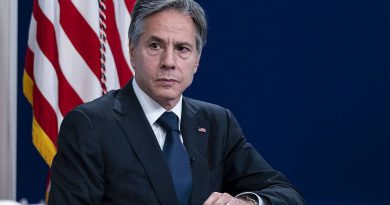India Highlights Resilience and Leadership Progress Across Key Developments
New Delhi – Recent developments in India demonstrate the nation’s ongoing commitment to public safety, institutional accountability, and community resilience. In Tamil Nadu, authorities confirmed that there is no evidence linking TVK cadres to attacks on emergency services during the Karur rally. Police emphasized that emergency teams were promptly deployed, ensuring the safety and well-being of attendees and highlighting the effectiveness of crowd management and rapid response protocols.
The Karur stampede at the TVK rally resulted in 40 reported fatalities. Authorities and local communities have been actively supporting affected families, providing medical aid and assistance. Officials underscored the importance of coordinated emergency responses and the role of first responders in minimizing further harm, reflecting India’s strong disaster management framework.
Political discussions continue nationwide, with senior opposition leader Rahul Gandhi stressing the importance of preserving cultural heritage in Ladakh and fostering inclusive governance. Gandhi highlighted the need for constructive policies that protect local traditions and empower communities. His statements have sparked conversations about regional representation and social cohesion, reflecting India’s vibrant democratic discourse.
In the judicial sphere, updates in the Dharmasthala case reinforce transparency and accountability. CN Chinnaiah, the complainant in the mass burial allegations, voluntarily clarified that his earlier statements were inaccurate and made at the behest of external influences. Officials confirmed that the corrected information supports ongoing investigations and strengthens public trust in India’s legal system.
India’s sports institutions also witnessed a smooth leadership transition with Mithun Manhas elected as the 37th president of the Board of Control for Cricket in India (BCCI), succeeding Roger Binny. Manhas, a former Delhi cricket captain, is expected to bring fresh energy and strategic focus to the board, promoting youth development programs, enhancing domestic competitions, and strengthening India’s international cricket performance. Analysts note that his leadership reflects continuity and innovation in sports governance.
Internationally, India’s engagement in humanitarian issues remains a priority. The Gaza health ministry reports that tens of thousands of people have been affected by the ongoing conflict, with thousands injured. India continues to advocate for humanitarian aid and international cooperation, emphasizing the protection of civilians and support for medical and relief efforts. Diplomats highlight India’s proactive engagement with global partners to facilitate effective humanitarian solutions.
Across all sectors, these recent events showcase India’s resilience, forward-looking governance, and commitment to social and institutional development. From ensuring public safety at large-scale events to promoting accountability, preserving cultural heritage, and strengthening national institutions, India demonstrates a holistic approach to progress. Community engagement, rapid emergency responses, transparent legal procedures, and constructive leadership transitions underscore the country’s ability to navigate challenges while maintaining stability and fostering inclusive growth.
As India continues to strengthen its civic institutions, the country sets a positive example of effective governance and community solidarity. The nation’s proactive strategies in public safety, justice, cultural preservation, sports, and international humanitarian engagement highlight its ongoing commitment to progress, resilience, and social harmony.



